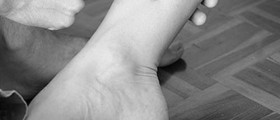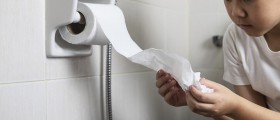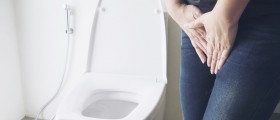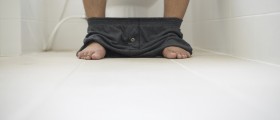
When a child who is considered to be old enough to control his/her bladder cannot hold urine and this predominantly occurs during the day, he/she is diagnosed with a condition called diurnal enuresis, or involuntary urination during the day. Usually, small children, during the first several years of their lives tend to wet themselves or have problems with controlling their bladder during the day. However, this stops once they reach the age of about 4 ½. Nevertheless, about 4% of children continues to urinate involuntarily during the day.
Reasons behind Daytime Enuresis
Most children aging from 3 to 5, experience this problem due to their reluctance to stop playing or indulging into their daily fun activities in order to go to the toilet. These children are known to be bothered by an urge to urinate and they may fidget, hold their private areas or squirm. Such children need to be taught about the necessity of regular and timely urination and have to be encouraged to go to the bathroom whenever they need.
In some cases of this phenomenon, the affected child may suffer from urinary tract infection. Also, a vast majority of girls prone to daily enuresis have problems such as ADHD as well. Then, the urination problem needs to be taken care of through treating the underlying cause by medications.
Stress and frustrations, along with emotional traumas may lead to involuntarily urination during the day.
As far as some less frequent causes are concerned, constipation can trigger diurnal enuresis. Alternatively, the same problem may stem from a reflux of urine into the vagina, leading to urination once a child stands up.
Other causes of this problem are labia minora fusion, laughter, the Hinman syndrome, spinal cord problems leading to neurogenic bladder or a presence of some kind of blockage in the urinal canal, leading to increased pressure of urine, too strong for the bladder to control. Finally, diabetes and some other chronic health conditions may increase one's chances of wetting him/herself during the day.
Treatment for Daytime Wetting
If the condition lingers, medical assistance is necessary for a successful diagnosis and treatment. A detailed physical exam of the child needs to be done, along with a series of tests and questions, ruling out some underlying conditions known to trigger daytime wetting.
Parents should not punish their children for wetting themselves, but, rather, try to understand their problem and offer support and encouragement as well as positive reinforcement once the child manages to stay dry. Any underlying causes present should be treated timely and efficiently. Their disappearance is likely to result in cessation of diurnal enuresis.

















Your thoughts on this
Loading...